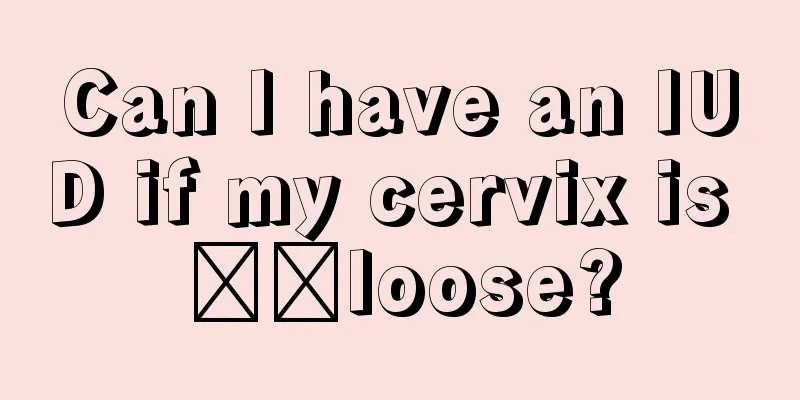Why do women have two periods in one month?

|
Although having two periods in a month sounds impossible, it actually happens to many women, which makes them feel confused and wonder whether they need to go to the hospital for a check-up. In fact, this actually depends on the situation. Having two periods in a month cannot be said to be completely abnormal. So, why do we have menstruation twice a month? Let me give you a detailed introduction below. Why do I have my period twice a month? Doctors say that having two menstrual periods in a month may be non-menstrual vaginal bleeding, which generally occurs in the following situations. 1. "Ovulation bleeding". In Western medicine, it is called ovulation bleeding, and in traditional Chinese medicine, it is called "mid-menstrual bleeding." Some people only have a small amount of brown secretion, which usually lasts for half a day or 2-3 days, and no more than 7 days at most, and may be accompanied by mild ovulation pain and back pain. If the symptoms are mild, no treatment is required, but if the symptoms are severe and may affect fertility, treatment should be given. 2. Multifunctional abnormal uterine bleeding. Its main manifestations are generally irregular menstrual cycles, excessive menstrual flow, prolonged menstruation or non-menstrual bleeding. Due to long-term bleeding, some people also suffer from varying degrees of anemia. 3. If bleeding occurs after a delay of 7-10 days, you don't have to think that it is definitely late. You should pay attention to whether the amount, color, and duration of bleeding are the same as the usual menstrual period. If the menstrual period is sometimes more, sometimes less, and is continuous, and is accompanied by abdominal pain, you need to pay attention to the possibility of ectopic pregnancy or threatened abortion; if the bleeding is more than usual, lasts longer, and the menstrual pain is obvious, it is common in uterine fibroids or endometriosis. Immediate medical attention is essential. 4. Vaginal bleeding after sexual intercourse is called irregular bleeding, which is often related to gynecological diseases such as vaginitis, cervical erosion, cervical cysts, early cervical cancer, and cervical fibroids. 5. Some women may also experience vaginal bleeding after taking birth control pills. Contraceptive pills can affect menstrual cycles, especially repeated use can cause menstrual disorders, bleeding, and prolonged period bleeding. It should also be pointed out that some women may have their menstrual period affected by the indiscriminate use of "health products" and "breast enhancement medicines and creams" containing growth hormones. 6. Generally, vaginal bleeding will stop 3-7 days after an abortion or miscarriage. In very specific people, bleeding may increase due to physical weakness, fatigue, etc., but this needs to be distinguished by a doctor. |
>>: How many days after menstruation is the ovulation period for women
Recommend
What are the treatments for acute pelvic inflammatory disease?
Pelvic inflammatory disease is a relatively commo...
What is the cause of brown leucorrhea and itching?
Some friends often experience symptoms of brown a...
How to develop full and sexy breasts?
Modern women pursue not only a slim figure, but a...
How to unclog the milk ducts to enlarge breasts
Have you ever heard of the idea of unblocking t...
What are the causes of postpartum ovarian cysts?
Family planning is implemented in today's soc...
What are the characteristics of sea buckthorn juice? Where is sea buckthorn juice produced?
Seabuckthorn is mainly composed of glucose and fr...
Can heavy bleeding during miscarriage lead to death?
Abortion is generally divided into two situations...
How to stop breastfeeding during mastitis?
For a woman, giving birth to a baby is both a pai...
Is ultrasound accurate for four months of pregnancy? What should I check for in the six weeks of pregnancy?
After pregnancy, you need to have regular prenata...
West China experts remind you: Never endure the pain in your body, 7 methods can help you relieve it!
Pain is an indescribable and uneasy feeling. Chro...
Is postpartum physical therapy necessary?
Many expectant mothers think that their ten-month...
Picture of fetal sac falling off after medical abortion
If a pregnant woman decides that she does not wan...
Autumn chest care methods
Autumn is different from other seasons because th...
What to do if you have spotting during 2 months of pregnancy
For many pregnant women, the early stages of preg...









